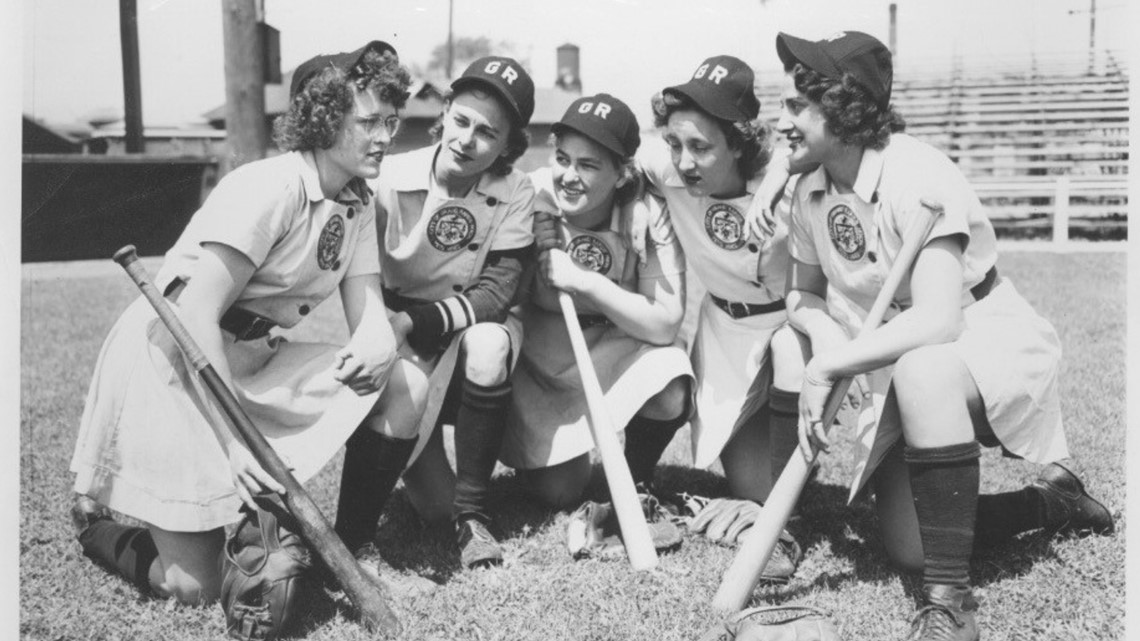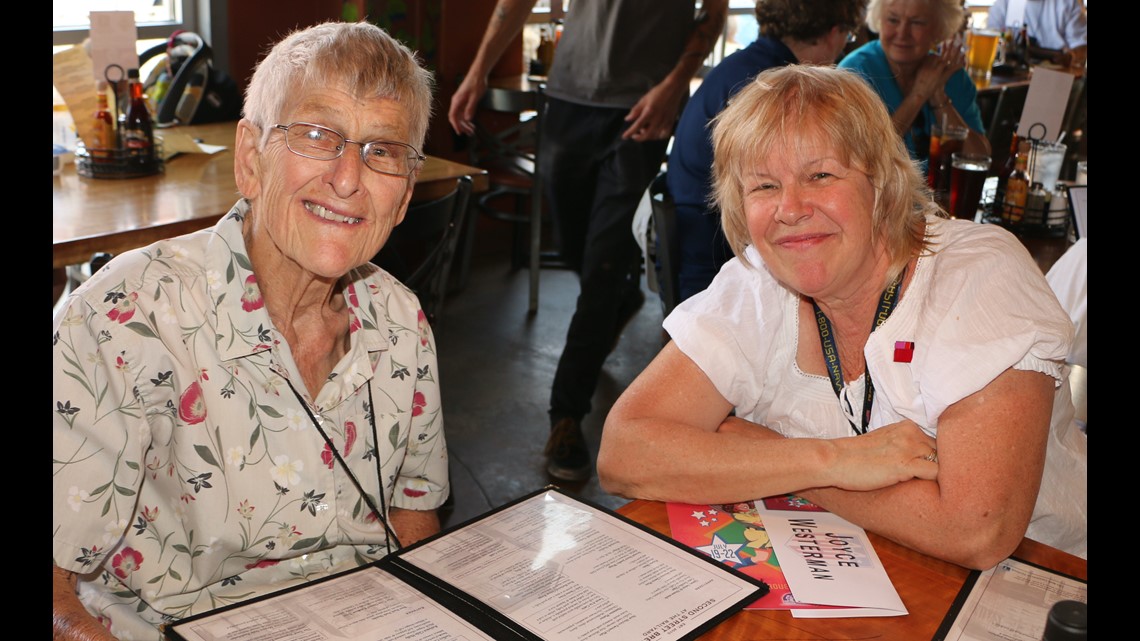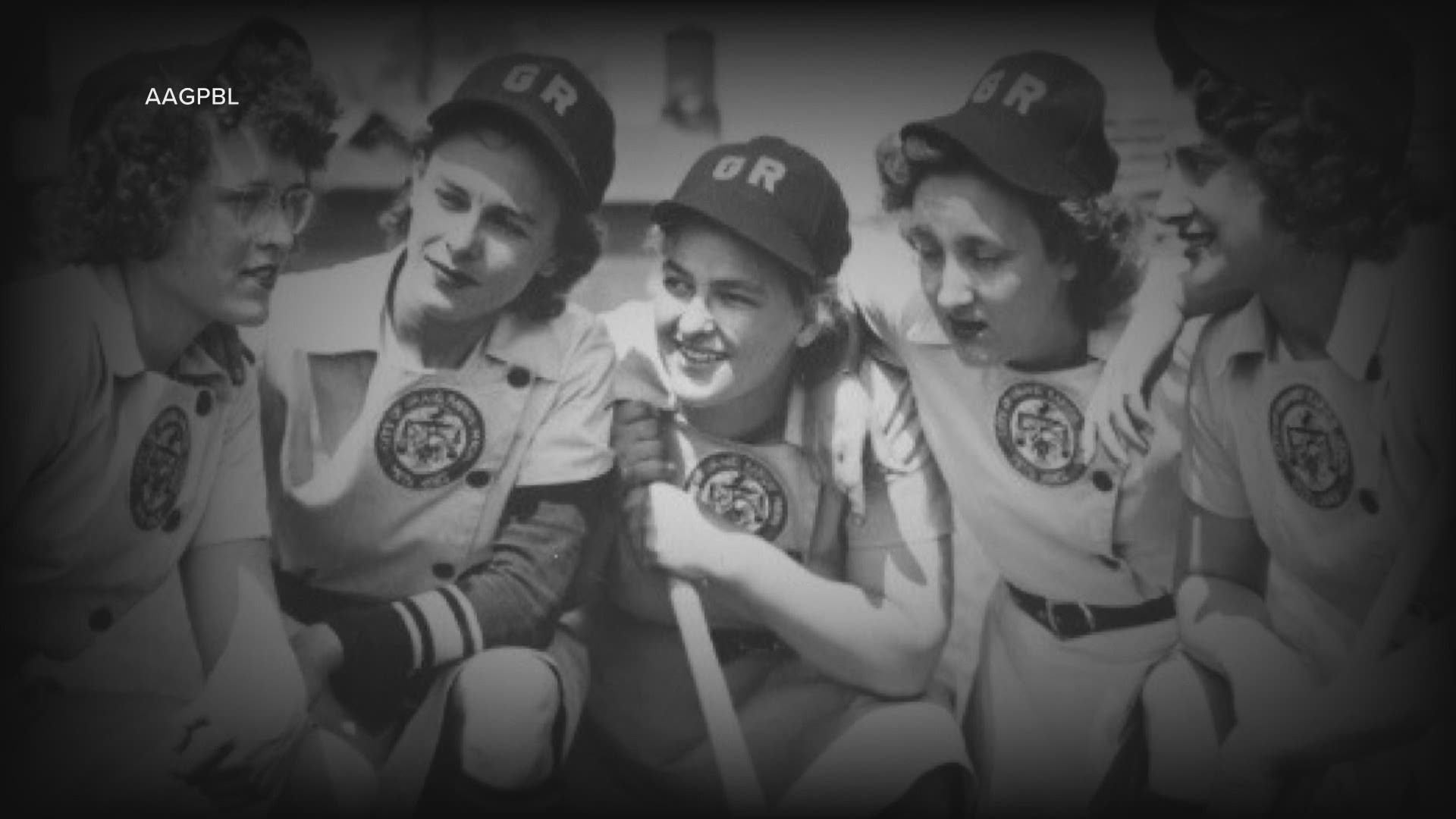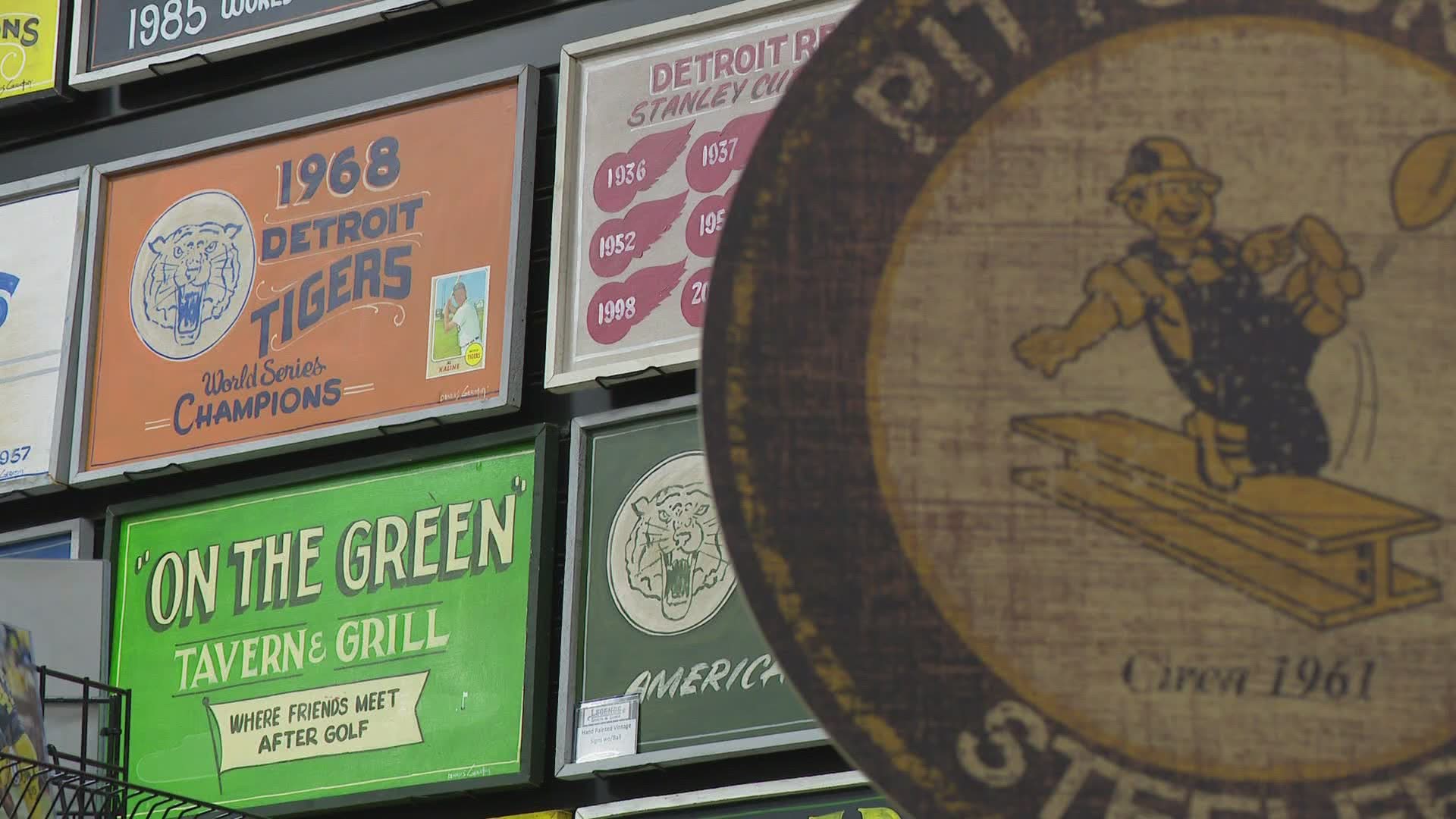GRAND RAPIDS, Mich — When it comes to Grand Rapids sports legends, Joyce Hill Westerman may not be the first name that comes to mind. After all, her only season with the Grand Rapids Chicks was her rookie year, a year in which she only had 18 at bats over nine games.
But the 1945 season Westerman spent in Grand Rapids was historic for the city. The Chicks franchise had just moved from Milwaukee, where the team struggled to compete for fans with the Brewers, which at the time was a minor league franchise.
It was West Michigan's first involvement in the All American Girls Professional Baseball League, which began in 1943. Prior the AAGPBL, opportunities for women to play sports were scarce.
Westerman was traded after her first season with the Chicks. But she stayed in the league until after the 1952 season. She passed away this January 18 at the age of 95. The only other player on the 1945 team not listed as deceased with the player's association is Mary Butcher Marsh. But the league has not heard from her in years.
"I’m not aware that she’s attended any reunions, certainly within the last 20 years. So it’s very possible that Joyce could have been the last surviving member of that 1945 team," said AAGPBL associate member Donna McLin.


Just a farm kid from outside Kenosha, Wisconsin
Westerman grew up in a rural area of Wisconsin, which at the time was disconnected from city life in nearby Kenosha. In fact, before being encouraged to try out for the Kenosha Comets in 1944, she wasn't aware that the team even existed.
"They didn't get the paper. They just weren't aware of much of anything," said James Smither who is a history professor at Grand Valley State University and director of the school's Veterans History Project, which interviewed around 50 AAGPBL players.
"She basically learned to play from her father and her brothers and the kids in the neighborhood. She only ever got to play pickup games because there wasn’t anything organized, and certainly not for girls. It kind of bugged the guys because she could hit better than most of them."
Westerman got a chance to try out for the Comets when they were short on players in 1944. She made the team and was able to play a few games before moving on to Grand Rapids for her rookie season the following year. Her first train ride was on the way to the try out.
"For her, this was just all brand new and a big adventure," Smither said.
Westerman's rookie contract was worth $55 per week, which would be about $800 per week in today's money. She recalled the shock of realizing that she would be making more money playing baseball than her dad did working in a factory.
A great rookie experience
Despite a lack of playing time in Grand Rapids, Westerman's time with the Chicks would prove to be important for the career ahead of her.
"She walked in as a rookie to a super talented team," said McLin.
"The starting catcher at the time was Mickey MacGuire, who was a phenomenal catcher in the league. She was probably mentored by some really strong players that allowed her to grow in the game very quickly."
The Chicks finished the 1945 season with a record of 60 wins and 50 losses. They qualified for the playoffs, which saw them lose in the first round to the eventual league champion Rockford Peaches, three games to one.
Following her rookie season, Westerman was traded to the Fort Wayne Daisies. Her career spanned 10 seasons in which she also played for the South Bend Blue Sox, Peoria Redwings and Racine Belles.
"She played in over 500 games, so she was a real source of strength in the league. She was a good player. Very talented," said Mark Kimball of the Grand Rapids Sports Hall of Fame, which inducted the entire Chicks team in 2001.
"We recognized 20 years ago that there were some teams that just were powerfully impactful in our community and as we started to look at the teams as a new award to give, the Grand Rapids Chicks were at the top of that list."


A 'Hall of Fame' mother
Ask anyone who has attended an AAGPBL reunion and they'll tell you that the Westerman and Hill families are well-represented at the events, and it's all because of unwavering support for the matriarch of the family.
"She was a dedicated mother and a faithful wife. She was passionate about everything she did. She always did her best. When she pursued her baseball career, she was following her passion," said Westerman's daughter, Janet Vanderford.
Up until her dying day, the women following in Westerman's footsteps kept on learning fascinating, new details of her career.
"We were going through the stuff in her basement, just trying to get it into proper, safe storage. I found a letter to her signed by Mr. Wrigley," said granddaughter Tracy Sunday, referring to Philip Wrigley, the Chicago chewing gum tycoon and founder of the AAGPBL.
"She was negotiating contracts with Mr. Wrigley, and she was just so humble. She never mentioned that. It was just the process of what she was doing."
"She kept records of everything. She had newspaper articles from when she was playing ball. She has original scrapbooks. She had two of her original uniforms. Just things that you knew were very important to her," said great granddaughter Courtney Cotter.
Even though she lived a fascinating life, her family members say what they will miss most about her is her down-to-earth personality.
"She was a little bit stubborn, but very loyal. Very honest. Humble. The kindest person you could ever meet," said great granddaughter Jodi Vanderford.
A lasting legacy
Many people are now aware of the story of the AAGPBL. But that wasn't always the case. The league was forgotten by many before Penny Marshall saw a documentary about the league and decided to make the 1992 movie "A League of Their Own."
"That took them from being potentially a footnote in a history book to the forefront of women’s professional sports," said McLin.
The league also created opportunities for the players they may not have had otherwise.
"A lot of them went to college because of the money that they made. A lot of them went on to be involved in women’s sports in different ways. Some of them were involved with people who helped push Title IX," said Smither.
Everyone interviewed for this story seemed to agree that the AAGPBL players did not realize at the time that they were making history. But with more of them passing away each year, historians are committed to keeping the league's story alive for the next generation of athletes to know whose shoulders they are standing on.
"Our team here in Grand Rapids, they’re part of a really special time in sports history for women. They seemed to pave the way for women’s baseball and women in other sports as well," said Andrea Melvin, who serves as the Collections Curator at the Grand Rapids Public Museum.
"There were a lot of limitations placed on women just in society in general but especially in sports. The league really kind of demonstrated that there was a lot more to women’s capabilities than just image."
"It’s so important that we maintain the history, that we know it, we understand it, and we appreciate the significance that this group of women played from 1943 to 1954 had in the history of women’s sport," said McLin.
Joyce Hill Westerman will be laid to rest on Saturday, January 30.
►Make it easy to keep up to date with more stories like this. Download the 13 ON YOUR SIDE app now.
Have a news tip? Email news@13onyourside.com, visit our Facebook page or Twitter. Subscribe to our YouTube channel.


